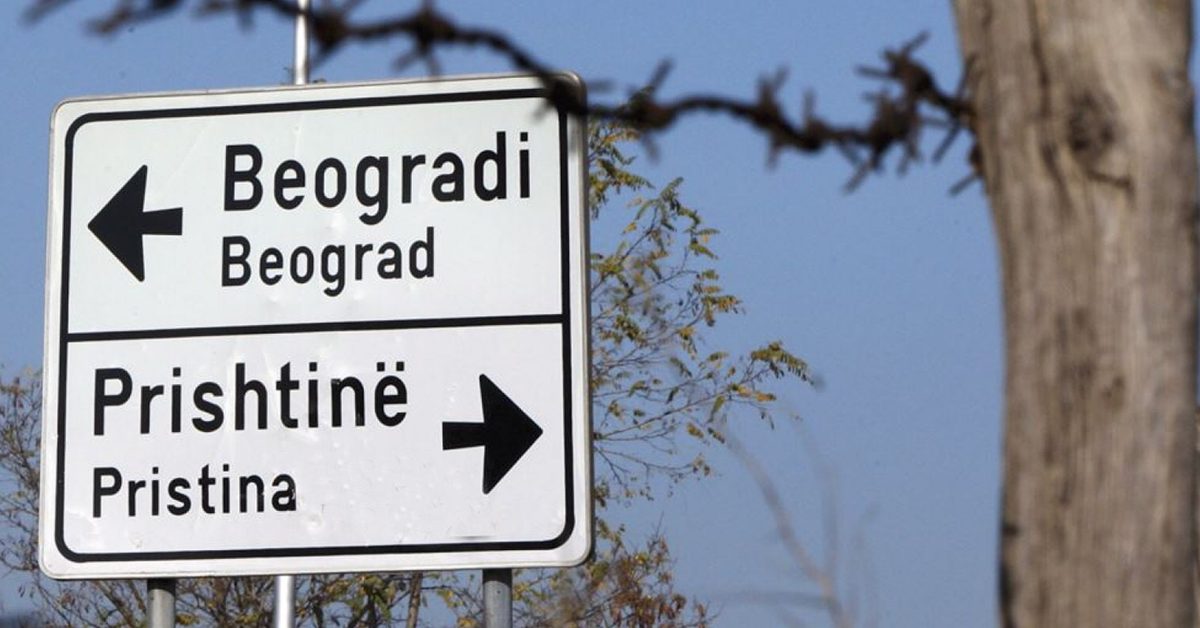Nearly 60 years of negotiations between various local administrations at the territory of former Yugoslavia about territorial impacts and infrastructure are relevant to inform technical dialog between Pristina and Belgrade. The key lesson learned over that long period is that (rare) deliberate external interventions into physical infrastructure made a profound impact to promote durable agreements and poverty eradication, while endless political negotiations tend to overlook poverty problems. When new physical reality is established, people adjust to it and, with more or fewer frictions, the life of indigenous people gets better and political resolutions easier. Trieste crisis from the 1950s demonstrates that effect.
As a matter of fiscal necessity and the need for international assistance, entire region subscribed to international agreements on climate change (UNFCCC Paris Agreement), energy market (Energy Community Treaty) and the EU integration. These agreements are accompanied by investment rules and regulations including the OECD Agreement on Export Financing and state aid regulations. Kosovo as well, although not a member of the UN, is enticed to adhere to these agreements as a consequence of the UN mandate and aspirations of the region to accede to the EU, especially after the agreement reached in Brussels between Prishtina and Belgrade on regional cooperation, in 2012. These compacts form a legal framework for technical dialogue and ground for eventual durable arrangements.
However, a number of critical international compacts that are necessary to facilitate economic development are not yet fully applicable to the Balkans. That includes UN ECE protocols on cross border pollution, cross border water flow, Technologically Enhanced Naturally Occurring Radioactive Materials (TENORM), access to the sea, and many others. Furthermore, some critical aspects such as cross border impacts of deforestation, are not envisaged while some others (such as EU emissions directives that are more appropriate for windy Northern and Western Europe but not that adequate to Balkan karst valleys where strong wind is seldom) are not entirely appropriate for this region.
That demonstrates uncertainty about the wider legal framework for any technical dialogue and durability of eventual agreements. It is therefore advisable for all participants to take into consideration the entire international legal framework and fully understand long term implications of various technical options.
While all this creates a legal environment for on-going negotiations between administrations of Serbia and Kosovo there is also a physical reality to be considered. From Kosovo highland water flows toward Adriatic, Danube and Aegean watersheds. Massive deforestation in that area affects water regime over most of Serbia’s territory. Being at high altitude, emissions (to air and water) from Kosovo (existing or intended) lignite-fired plants affects also the territory of Serbia and neighboring EU countries. The same goes for Serbian lignite-fired plants.
These effects are augmented by climate change: Balkan is experiencing some of warmest years in history during last 20 years. The average temperatures have increased and precipitation patterns are far more volatile: draught and flooding extremes overtook steady melting of long-lasting snow cover.
Being located at bottoms of karst valleys, lignite mines with associated energy infrastructure are disproportionally exposed to risks of flooding and these risks grow. As average lignite quality deteriorates all across the region, open pits have to be extended to wider areas, go deeper, pump out more water and require greater infrastructure for same energy outcomes. Legal framework and physical reality interact to influence the commercial value of natural resources, geological resources, and territory.
These interactions are also evident in transport: Although some coastal countries recognize Kosovo as an independent state, they are not obliged to provide unobstructed access to the sea, as UN Convention does not apply. This could be the space where EU conventions are fostered. Even if the Convention on the Law of the Sea is taken into consideration, actual port and railway infrastructure have little to offer. From another perspective, dysfunctional railway system and dysfunctional Belgrade cargo handling, does not provide opportunities for international trade to commercial entities from Kosovo or Serbia and the rest of Balkans toward Danube catchment area. Regardless of how ambitious trade policies and custom regimes become, it achieves a little even with dramatic policy interventions. These circumstances facilitate persistent poverty not only in Serbia and Kosovo but in most of the Balkans.
That makes profound political impacts. Cross border disputes about hydropower use, flood protection, cross border pollution, energy, and trade, increase. Using historical data that does not apply anymore, governments and financial institutions inherited thinking about investment potential that further complicates their relations not only between themselves but with the indigenous population and the rest of Europe.
As it stands now, the region is likely to fail to meet material aspects from a number of international obligations and to share its fair burden in fighting climate change. Before the end of this year, a number of failures, delays, and shortcomings in achieving material obligations related to climate change, environmental impacts, transport infrastructure, and energy markets will be more evident. The Balkans may find itself at odds with the European Union and most of the international community, within growing physical risks and dissolution of a legal framework. The region may emerge as a security risk once again and in a far more complicated context. If that happens, the environment for negotiations could become more complicated.
It is to be considered that actual deliberate external investments into massive forestation, erosion prevention, energy security, eradication of energy poverty and commercial transport infrastructure are necessary pre-conditions for eventual breakthroughs in political relations in the Western Balkans and Serbia-Kosovo specifically. Smart deliberation toward sustainable commercial investments has to prevail over vested interests rooted in outdated rent-seeking expectations. Only when (or if) relevant stakeholders embrace new and more sustainable infrastructure as well as physical, legal and commercial realities there will be a ground for fruitful discussion.
Written by: Aleksandar Kovačević – Senior Visiting Research Fellow at Oxford Institute for Energy Studies (OIES). An energy economist with nearly 30 years of private consultancy experience serving institutional (the World Bank, UN, EC, USAID, IEA/OECD) and private clients in Southeastern Europe, the Russian Federation and elsewhere.
The article has been published on the European Western Balkans Website.
This publication has been produced with the assistance of the European Union. The contents of this publication are the sole responsibility of Kosovo-Serbia Policy Advocacy Group and can in no way be taken to reflect the views of the European Union.



